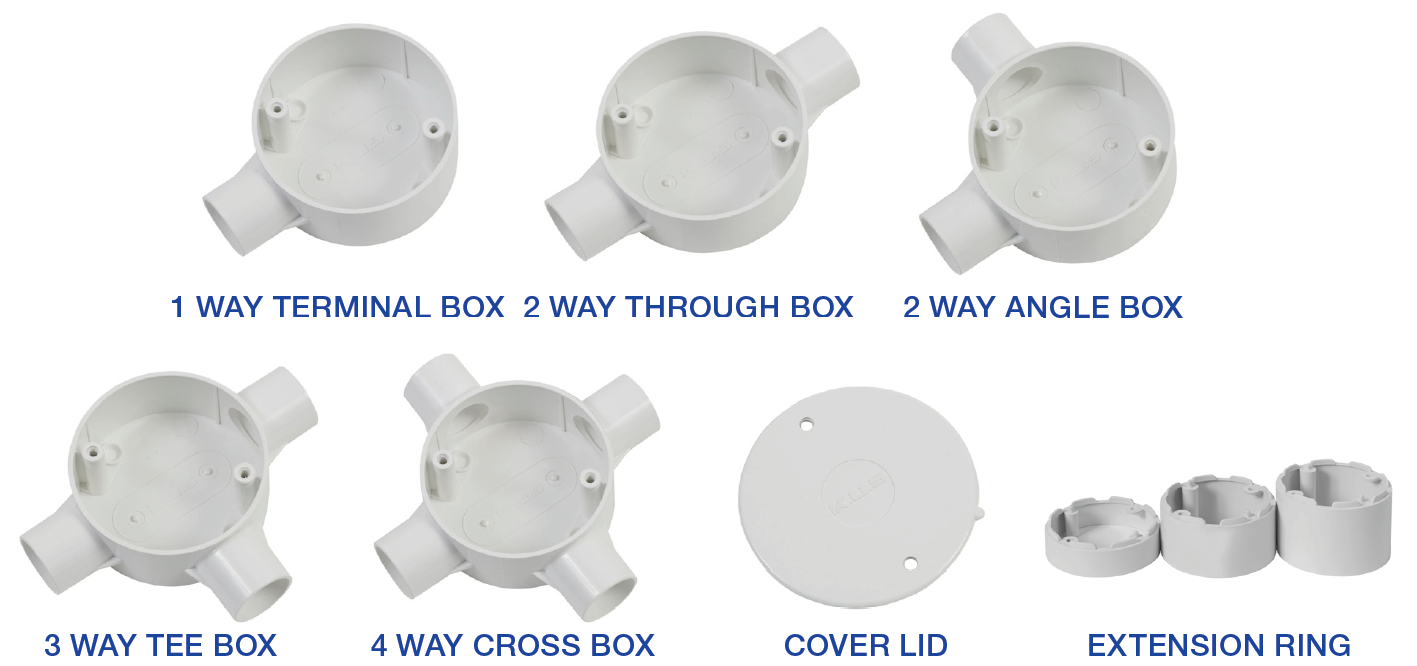MATERIAL KUS Electrical Accessories are manufactured from unplasticized polyvinyl chloride polymer (uPVC). The basic material of uPVC is PVC which is made from vinyl chloride monomer usually known by its initials VCM through polymerisation. Hence, it is rigid.
CODES & STANDARD COMPLIANCE
| Code | Standard Compliance |
|---|---|
| BS 4607-5:1982+A3:2010 | Non-metallic conduit fittings for electrical installations. Specification for rigid conduits, fittings and boxes of insulating material where applicable” |
| BS 4607-1:1984+A2:2010 | Non-metallic conduits and fittings for electrical installations. Specification for fittings and components of insulating material where applicable |
| BS 4662:2006+A1:2009 | Boxes for flush mounting of electrical accessories. Requirements, test methods and dimensions where applicable |
ADVANTAGES
RESISTANCE TO COMPRESSION uPVC material has structural flexibility that allow the material to withstand substantial deformation without permanent distortion even in the wall, in the concrete and underground.
RESISTANCE AGAINST CORROSION PVC is immune to damage from naturally corrosive soil conditions, as well as electrochemical and galvanic corrosion. This ensures lower maintenance costs and superior performance in the long run.
FIRE RESISTANT uPVC conduit system is inherently difficult to ignite. If the ignition source is withdrawn, it will stop burning. Heat production is comparatively low making it particularly suitable for electrical wiring, electrical protection of the insulated conductors and cables therein contained.





